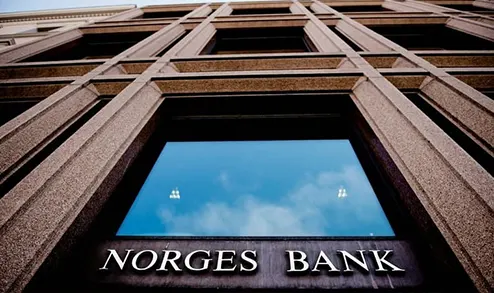 According to a study titled “The Prevalence of Online and Land-Based Gambling in New Jersey,” which was backed by New Jersey’s Division of Gaming Enforcement (DGE), the state’s high-risk problem gambling rate is on a decline and has gone from 6.3% to 5.6%. The results also show that low and moderate-risk gambling has decreased by 2% and now stands at 13%.
According to a study titled “The Prevalence of Online and Land-Based Gambling in New Jersey,” which was backed by New Jersey’s Division of Gaming Enforcement (DGE), the state’s high-risk problem gambling rate is on a decline and has gone from 6.3% to 5.6%. The results also show that low and moderate-risk gambling has decreased by 2% and now stands at 13%.
The report was conducted by researchers from the Rutgers University School of Social Work, Center for Gambling Studies, and a total of 3,512 individuals from New Jersey were surveyed between December 9, 2020 and April 30, 2021. This is the second such study, with the first one having been conducted in 2017. The questions involved 15 types of gambling activities, including but not limited to slots, lottery, games of skill, live casino games, and sports betting. Of the said activities, participation in lotteries was the most widespread, with 73% of those surveyed reporting that they had purchased lottery tickets.
Attorney General Matthew Platkin stated that the aim of this study was to examine how New Jersey residents partook in gambling, identify the struggles of individuals who are at risk, and formulate programs that could aid those in need.
The Findings
About 61% of the participants answered that they had gambled in the past year, and around one-third of them were individuals with a yearly income of less than $30,000.
Sports betting and online gambling saw an increase, while retail gambling now stands at 49%, which is 27% less than what was recorded in the 2017 report. Additionally, the rates of gamblers who placed bets on online websites and at land-based locations went from 19% to 36%, with respondents citing participation in an average of six gambling activities.
It was found that around 32% of those who partook in mixed gambling were facing gambling problems, and these results were similar to those of the respondents who gambled exclusively online. Overall, the percentage of problem gambling in New Jersey was three times that of the US national average.
The study also highlighted that low-income individuals were overrepresented when it comes to problem gambling, as over 14% of those who reported being high-risk problem gamblers had a household income of less than $15,000.
What Can be Done to Combat Problem Gambling in New Jersey
Despite the promising results of the state-specific decline, the report also found that the rate of problem gambling in New Jersey versus that of the United States average remains concerning, and the state is still facing gambling-related problems overall.
Currently, the DGE and the New Jersey state regulate numerous licensed entities to ensure that all operators follow strict requirements regarding responsible gambling. Lottery-related operations, on the other hand, are regulated by the New Jersey Lottery Commission. Other watchdogs include the Racing Commission, the Casino Control Commission, and the Legalized Games of Chance Control Commission.
The report highlighted how having a variety of regulatory bodies that oversee the operations of gambling activities in New Jersey has led to an exacerbation of the problems tied to how many individuals partake in a variety of gambling activities. Due to this, a recommendation was made for the regulatory entities to develop “uniform regulations,” and urged for the design of a single online portal that users could access in order to utilize responsible gambling tools across various gaming activities. Another recommendation pointed to the necessity of more efforts to assist individuals from vulnerable communities. A need for further measures to prevent problem gambling among minors was also noted to be of utmost importance.
 As shown in data provided by Portugal’s Gaming Regulation and Inspection Service (SRIJ), a total of €205.9M in online gaming proceeds was generated over 2023’s second quarter. According to the watchdog, €122M of the money was generated from games of chance, while €84M came from sports betting.
As shown in data provided by Portugal’s Gaming Regulation and Inspection Service (SRIJ), a total of €205.9M in online gaming proceeds was generated over 2023’s second quarter. According to the watchdog, €122M of the money was generated from games of chance, while €84M came from sports betting. Chilean casino operator Enjoy could be acquired by Mexico’s Logrand Entertainment Group in a potential purchase. These developments follow a failed merger between Enjoy and another large Chilean gambling company, Dreams, as the companies’ plans fell through this April. Enjoy also shared in August that it was looking to sell company assets, and according to anonymous sources that reached out to media outlet Pulso, Logrand is discussing plans to potentially acquire Enjoy.
Chilean casino operator Enjoy could be acquired by Mexico’s Logrand Entertainment Group in a potential purchase. These developments follow a failed merger between Enjoy and another large Chilean gambling company, Dreams, as the companies’ plans fell through this April. Enjoy also shared in August that it was looking to sell company assets, and according to anonymous sources that reached out to media outlet Pulso, Logrand is discussing plans to potentially acquire Enjoy. The High Court of Bombay rejected a Public Interest Litigation alleging Dream11’s business activity fell under the category of gambling. The court classified the games available on the fantasy sports platform as games of skill.
The High Court of Bombay rejected a Public Interest Litigation alleging Dream11’s business activity fell under the category of gambling. The court classified the games available on the fantasy sports platform as games of skill. As Thailand’s fight against illegal gambling continues, the Deputy Prime Minister of Thailand, Somsak Thapsutin, made a statement on Tuesday expressing his support for the potential expansion of legal gambling within the country.
As Thailand’s fight against illegal gambling continues, the Deputy Prime Minister of Thailand, Somsak Thapsutin, made a statement on Tuesday expressing his support for the potential expansion of legal gambling within the country. The Norwegian Gambling Authority, Lotteritilsynet, unveiled it would implement stricter measures concerning the control of transactions to and from unlicensed gambling operators. The regulatory body disclosed it would put under scrutiny nine banks and conduct a thorough inspection of their compliance with the illegal payments ban.
The Norwegian Gambling Authority, Lotteritilsynet, unveiled it would implement stricter measures concerning the control of transactions to and from unlicensed gambling operators. The regulatory body disclosed it would put under scrutiny nine banks and conduct a thorough inspection of their compliance with the illegal payments ban. Although legal sports betting at Kentucky land-based operators launched a little more than two weeks ago, proceeds in excess of millions of dollars have already been generated. As per the latest reports, more than $4.5 million worth of bets have been placed over the last two weeks.
Although legal sports betting at Kentucky land-based operators launched a little more than two weeks ago, proceeds in excess of millions of dollars have already been generated. As per the latest reports, more than $4.5 million worth of bets have been placed over the last two weeks.  Underdog Sports LLC, SidePrize LLS, and Betr Holdings Inc. were issued cease-and-desist letters by the Florida Gaming Control Commission (FGCC). The warnings concern alleged betting games that were offered within the operators’ fantasy sports applications illegally, and each company was accused of operating an illegal lottery and accepting bets from Florida-based gamblers. If the operators fail to act on the orders, they could face legal repercussions.
Underdog Sports LLC, SidePrize LLS, and Betr Holdings Inc. were issued cease-and-desist letters by the Florida Gaming Control Commission (FGCC). The warnings concern alleged betting games that were offered within the operators’ fantasy sports applications illegally, and each company was accused of operating an illegal lottery and accepting bets from Florida-based gamblers. If the operators fail to act on the orders, they could face legal repercussions. The Golden Mesa is among Oklahoma’s most iconic casinos, and it is going to undergo a $70 million expansion. The occasion will be celebrated on the casino’s premises on Friday, September 22.
The Golden Mesa is among Oklahoma’s most iconic casinos, and it is going to undergo a $70 million expansion. The occasion will be celebrated on the casino’s premises on Friday, September 22. An increase of the current gambling tax rate from 18% to 22% of gross gaming revenue (GGR) is envisaged by the Sweden government. That would generate an extra SEK540.0 million ($48.4 million) of tax revenue per year. Provided that the government sanctions the proposed tax raise, it is expected to enter into force as of July 1, 2024.
An increase of the current gambling tax rate from 18% to 22% of gross gaming revenue (GGR) is envisaged by the Sweden government. That would generate an extra SEK540.0 million ($48.4 million) of tax revenue per year. Provided that the government sanctions the proposed tax raise, it is expected to enter into force as of July 1, 2024.